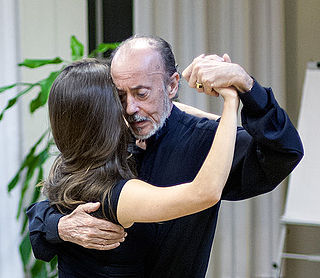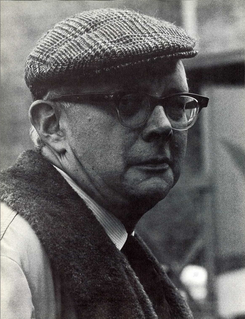A Quote by James De La Vega
Why does the feeling of emptiness occupy so much space?
Related Quotes
Healthy mysticism praises acts of letting go, of being emptied, of getting in touch with the space inside and expanding this until it merges with the space outside. Space meeting space; empty pouring into empty. Births happen from that encounter with emptiness, nothingness. . . . Let us not fight emptiness and nothingness, but allow it to penetrate us even as we penetrate it.
What differentiates time from space is that time does have a direction. In that sense it is different from space. I think that's certainly true that whereas spatial dimensions don't have direction or an arrow, time does. It runs from past to future. But I see that arrow of time as rooted in a deeper metaphysical reality, namely the reality of temporal becoming - of things coming to be and passing away. That is why time has this arrow. But it's not sufficient to simply say that time and space are distinct because time has a direction. The question will be: why does it have a direction?
Whereas I think: I’m lying here in a haystack... The tiny space I occupy is so infinitesimal in comparison with the rest of space, which I don’t occupy and which has no relation to me. And the period of time in which I’m fated to live is so insignificant beside the eternity in which I haven’t existed and won’t exist... And yet in this atom, this mathematical point, blood is circulating, a brain is working, desiring something... What chaos! What a farce!
Just as eagles soar through the vast expanse of the sky without meeting any obstructions, needing only minimal effort to maintain their flight, so advanced meditators concentrating on emptiness can meditate on emptiness for a long time with little effort. Their minds soar through space-like emptiness, undistracted by any other phenomenon. When we meditate on emptiness we should try to emulate these meditators.
They say you don't get over someone until you find someone or something better. As humans, we don't deal well with emptiness. Any empty space must be filled. Immediately. The pain of emptiness is too strong. It compels the victim to fill that place. A single moment with that empty spot causes excruciating pain. That's why we run from distraction to distraction and from attachment to attachment.
Much has been said of the loneliness of wisdom, and how much the Truth seeker becomes a pilgrim wandering from star to star. To the ignorant, the wise man is lonely because he abides in distant heights of the mind. But the wise man himself does not feel lonely. Wisdom brings him nearer to life; closer to the heart of the world than the foolish man can ever be. Bookishness may lead to loneliness, and scholarship may end in a battle of beliefs, but the wise man gazing off into space sees not an emptiness, but a space full of life, truth, and law.







































